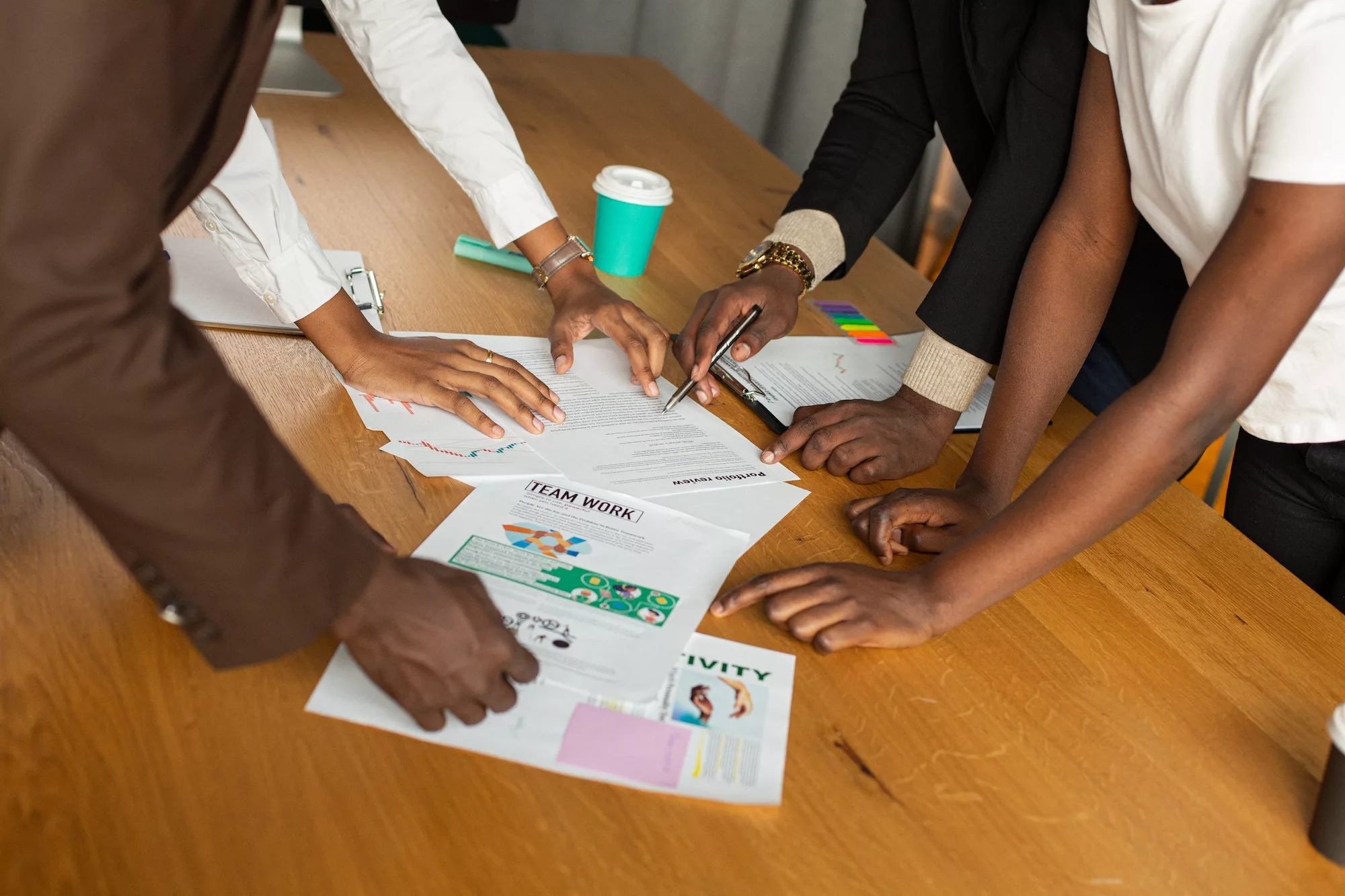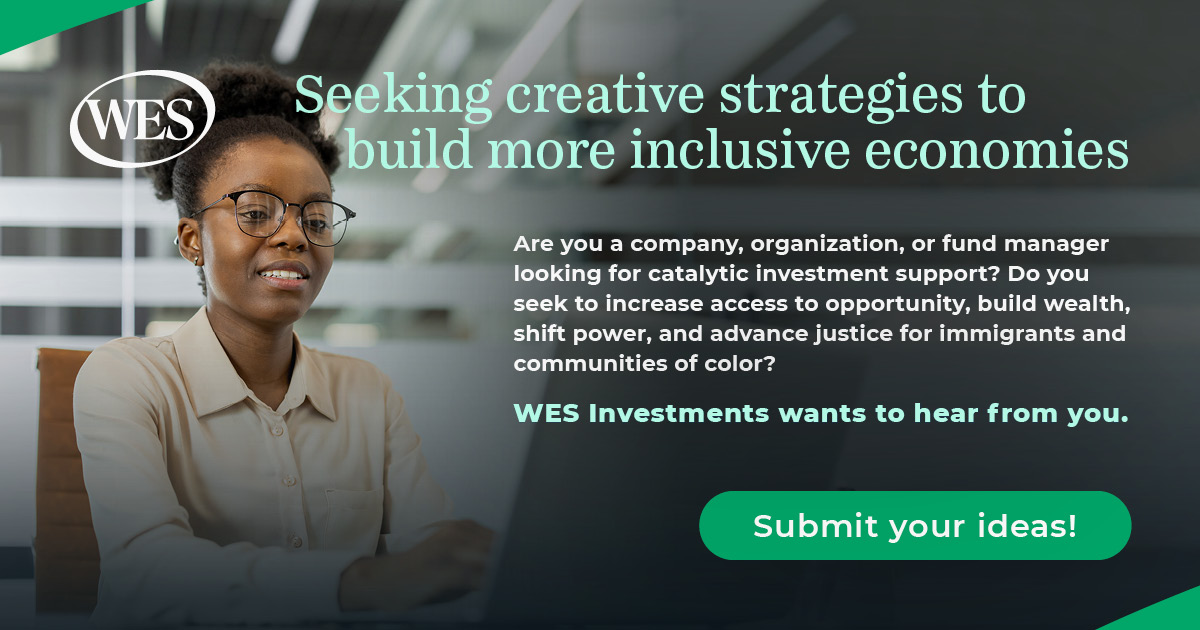Partnering to Build an Inclusive Economy and More Resilient Supply Chains
This Spotlight was created in partnership with EY.
The urgent and interconnected challenges of the climate emergency and deepening social inequality mean there can be no long-term future for companies that undermine the health of the social and environmental systems on which we all depend. The fundamental purpose of business must be reframed as profitably solving the problems of people and the planet, and not as profiting from causing them.
This is where social enterprises already live. Social entrepreneurs make it their business to identify causes of exclusion and marginalization; to develop, test, and scale new value propositions that can disrupt that status quo; and forge a new model that creates long-term value for society. If impact enterprises signal the future of business — and we believe that they do — then we should be doing everything we can to see that they achieve scale and prominence as quickly as possible.
One of the most impactful ways to do this is through partnerships with the corporate sector. As Mark Horoszowski, CEO of MovingWorlds, highlights in the workshop below, over $12 trillion is spent annually on business-to-business transactions, dwarfing the amount of impact investment available to social enterprises. Integrating social enterprises into corporate value chains can help corporations to fulfill ambitious ESG commitments and build more agile and resilient supply chains, while simultaneously providing entrepreneurs with the best kind of capital: earned revenue.
But what if this value exchange between social entrepreneurs and corporations went further?
Capital flowing from corporations to social enterprises, to help those enterprises scale faster and become self-sustaining, is one thing. But what about the intellectual capital that could and should be flowing the other way — the vast body of knowledge and insight that social enterprises possess about innovating new products, services, and business models that are capable of equitably meeting the needs of current and future generations, within the means of a flourishing planet?
Understanding the potential for corporations to learn and reverse-innovate from social enterprises is a defining feature of the inclusive business playbook, published by Acumen and EY, and a new breed of collaborations exemplified by programs such as TRANSFORM and the 100+ Accelerator. Aimed at both corporate leaders and social entrepreneurs, we hope that links to these and other resources below can help facilitate a broader and deeper value exchange — one that can turbocharge the advent of a more socially just, economically inclusive, and environmentally regenerative future for all.
Resources for Social Entrepreneurs and Corporate Leadership From SOCAP Events
Driving Inclusive Growth Through Corporate Social Procurement
For corporations looking for guidance, partnership examples, and recent research on social sourcing, we have the panel “Driving Inclusive Growth through Corporate Social Procurement” from SOCAP21. Diving into IKEA and SAP’s experiences, this session highlights transformative partnerships, what made them successful, and opportunities to integrate social enterprises into corporate value chains.
Helping Social Enterprise Build Partnerships with the Corporate Sector
For social entrepreneurs looking to identify and capture opportunities in corporate supply and distribution chains, we suggest this workshop from SOCAP20 facilitated by Mark Horoszowski, CEO of MovingWorlds. During this workshop, he discusses how social enterprises can:
- Identify new partnership opportunities
- Launch and optimize internal sales and partnership-building processes
- Deliver customer success and capture case studies
Forging an Inclusive Economy: The Role of Business
“Forging an Inclusive Economy: The Role of Business” from SOCAP21 features Gillian Hinde, EY Global Corporate Responsibility Leader, and Henk Jan Beltman, Chief Chocolate Officer at Tony’s Chocolonely. During the session, Gillian discusses the new “Inclusive Business Playbook” from EY and Acumen before Henk Jan provides a case study for a market-based approach to tackling inequality.
Resources for Social Entrepreneurs and Corporate Leaders From Our Community
On understanding the potential for deeper value exchanges between corporations and social enterprises:
- Download the “Inclusive Business Playbook” from EY and Acumen
- Read “Seven questions to make your business more inclusive of low-income and marginalized communities” on InclusiveBusiness.net by Gillian Hinde, EY Global Corporate Responsibility Leader, and Jessie Coates, EY Global Impact Entrepreneurship Leader
- Download insights from the first six years of the TRANSFORM collaboration between Unilever, the UK Foreign Commonwealth and Development Office, and EY, via the TRANSFORM “Flagship Library”
- Read “Working together to TRANSFORM lives” by Jessie Coates, EY Global Impact Entrepreneurship Leader
- Read “How social ‘intrapreneurs’ can help business achieve ESG targets” in the European Business Review by Steve Krouskos, EY Global Managing Partner — Business Enablement, and Francois Bonnici, Director of the Schwab Foundation for Social Entrepreneurship
On integrating social enterprises into corporate value chains:
- Download “Corporate-Ready: How Corporations and Social Enterprises do Business Together to Drive Impact” from Acumen and IKEA
- Download “The Social Procurement Manual” from Yunus Social Business
- Read “When corporations and social enterprises work together, they can change the world” in the World Economic Forum by Yasmina Zaidman of Acumen; Åsa Skogström Feldt of IKEA, and Saskia Bruysten of Yunus Social Business
- Read “Can Capitalism Lead a More Sustainable and Equitable Recovery? The case for more social enterprise inclusion in corporate supply chains and the global economy,” a report from MovingWorlds
- Read “How Social Enterprises Can Grow Through Strategic Partnerships with Corporations and Procurement Teams” by Alexandra Nemeth at MovingWorlds
- Read “Social Enterprises are Changing the Economy: Here’s Why Corporations Should Embrace Them in 2021” by Mark Horoszowski






